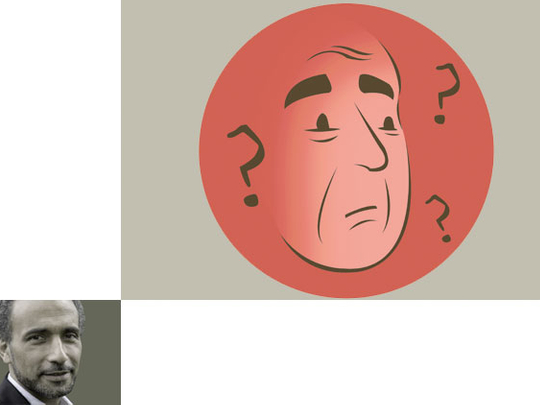
Tomorrow Egyptians should be celebrating the first anniversary of their January 25 youth uprising that ostensibly replaced dictatorship with democracy. But instead of gaiety in the air, there is a general atmosphere of nervousness. Just about everyone I’ve come across in Cairo and Alexandria are worried about the future and fear tomorrow’s anniversary will be marked by violence in the streets with protests planned against military rule. Everywhere I go people are shaking their heads saying, Al balad bayza (the country’s ruined).
Egyptians may have enjoyed the first free and fair parliamentary elections within living memory and can look forward to an upcoming ballot to choose their president. However, the purple-fingered euphoria has worn off. Some people complain that many voters didn’t have a clue who they were voting for due to the long list of mostly unknown candidates while others whisper of voting irregularities.
Be that as it may, Islamist parties such as the Muslim Brotherhood’s Freedom and Justice Party and the Salafists’ Al Nour have together come away with almost 75 per cent of the vote giving them a massive say in the drawing-up of the new constitution. As someone told me, with God on their side how could they fail in a country where most citizens are devout and were the poor consider the Creator to be their only lifeline. Indeed, it’s hardly surprising that families subsisting on less than $2 (Dh7.34) a day in many cases would opt for the Brotherhood and the Salafists who’ve been putting food on their tables for decades.
It’s undeniable that those parties have played a shrewd game. Their organisation has been impeccable. Early on, their spokesmen used the networks to come across as moderate assuring viewers that they would never seek to alter Egypt’s secular-liberal core. They banned religious banners from Tahrir Square and gained credibility from photo-ops showing their followers protecting Coptic demonstrators at prayer. The Brotherhood, in particular, has cooperated closely with the Supreme Council of the Armed Forces and has assured Washington that it has no intention of cancelling the peace treaty with Israel. However, it is not a monolith.
In recent months, various Brotherhood and Salafist politicians have championed the introduction of Sharia law and suggested that they would work to ban the sale of alcohol, ensure modest female dress and encourage women to leave the workplace. Some Salafists are out to create a religious ‘virtue and modesty’ police force armed with batons with which to smack infringers across the legs.
It goes without saying that such statements are anathema to Copts, who make-up some 11 per cent of the population, and have infuriated secularists and liberals who believed their revolution would result in greater personal freedoms. Indeed, I know of several Muslims who voted for Islamist parties who are having second thoughts based on rumours that their religious obligations might be enforced. Many, though, are hopeful that the country’s Islamist parties will ultimately avoid rocking the boat by mirroring the successful Turkish model. Those working in the field of tourism are especially concerned that such liberty-reducing measures will have an adverse impact on foreign tourism which has already become a trickle. Hotels are suffering from low occupancy rates, historical sites are deserted and vendors in tourist markets like Cairo’s Khan Al Khalili are barely eking out a living.
As the economy flounders, businesspeople, investors and big ticket consumers are holding on to their cash. Egypt’s foreign reserves have declined by 50 per cent this year and now stand at just over $18 billion. Bond yields are at record highs and a number of financial experts believe the only way for the Egyptian pound is down with some predicting that the currency will be devalued triggering soaring prices. There are currently queues at the petrol pumps amid rumours that the government is about to remove or reduce oil subsidies resulting in some petrol station owners hoarding fuel supplies.
The situation is so dire that the government is applying for a $3.2 billion loan that will come with less beneficial conditions that the IMF offer it turned down earlier. If Egypt’s new civilian government can’t bring civil and economic stability to the country, this time next year Egyptians could be embroiled in a revolution of the hungry.
It may not be fashionable to say this, but I can’t help but lay much of the blame upon the idealistic young people who started it all. They clearly had no plan beyond toppling Mubarak. They refused to appoint a leader or coalesce with established liberal parties and instead of political campaigns, they chose to return to Tahrir to take on the military. While they were fighting windmills, the opposition was getting its act together. Now one of their leading representatives, former IAEA chief Mohammad Al Baradei, has withdrawn from the presidential race because he says “the previous regime is still running the country” and he won’t run “unless it is within a real democratic system.” Fine sentiments, maybe, but they amount to defeat.
The youth movement protests that its revolution has been hijacked. I think it’s more accurate to say that its lack of pragmatism and experience led to those courageous young people unwittingly giving it away.
Linda S. Heard is a specialist writer on Middle East affairs. She can be contacted at lheard@gulfnews.com. Some of the comments may be considered for publication.










